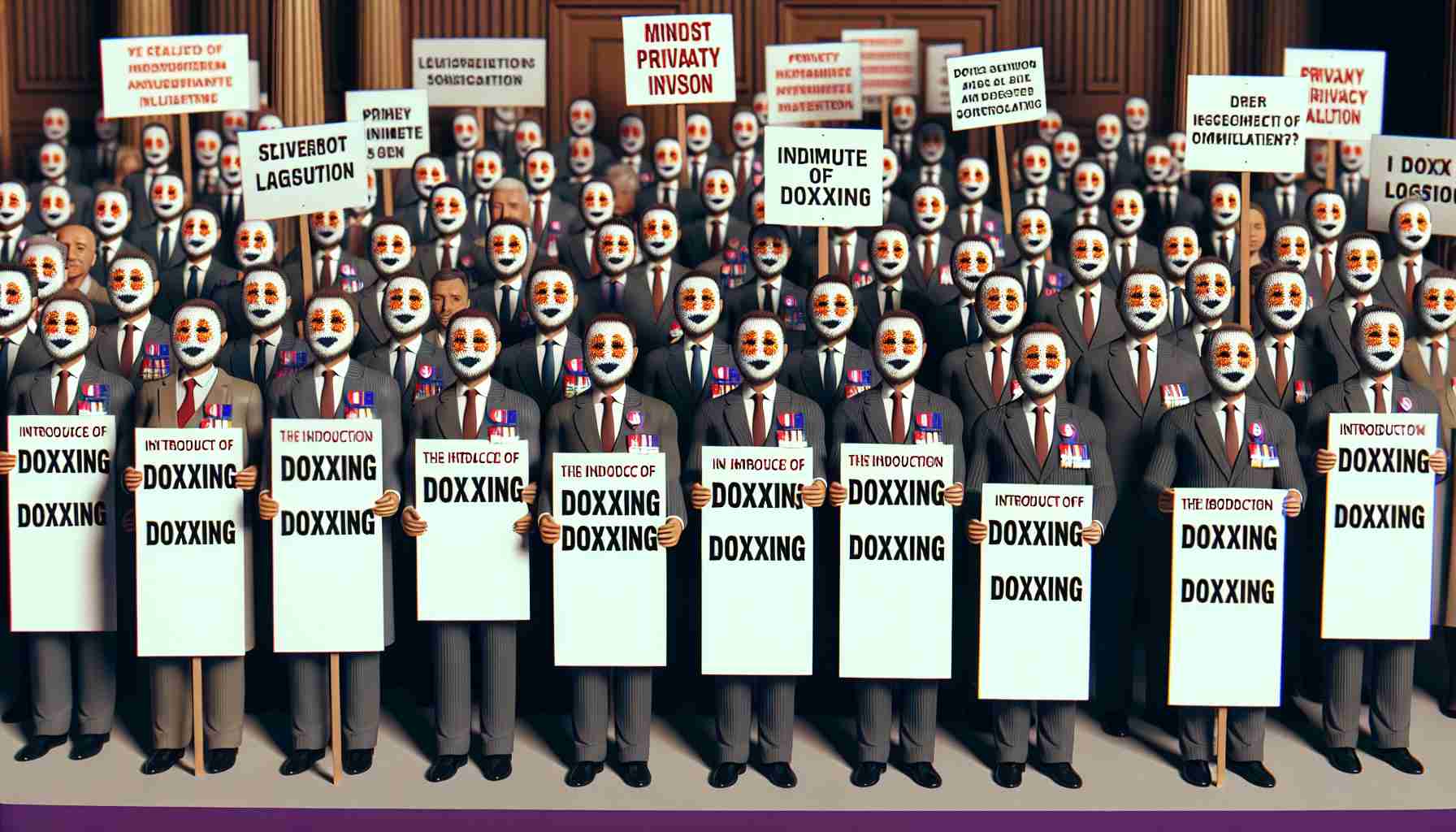A group of federal politicians from various parties have declared support for an initiative by the Jewish community to criminalize doxxing – the publication of identifying information about individuals with the intent to humiliate, intimidate, or attack them. This initiative was launched in response to the mass exposure of the identities of Jewish writers, artists, and scientists who were members of a private chat group.
Liberal MP Julian Leeser and independent MP Allegra Spender, who had previously condemned the targeting of Jewish individuals and businesses following the Hamas attacks on October 7 and the Israeli-Gaza conflict, have backed the idea of introducing legislation to combat doxxing. Labor MP Josh Burns described social media as a “new space” for anti-Semitism.
The politicians’ support comes as Prime Minister Anthony Albanese condemned the coordinated disclosure of the identities of 600 Jewish creators and scientists in a WhatsApp group called J.E.W.I.S.H by pro-Palestinian activists. “Attacking people simply because they are Jewish is completely unacceptable,” Albanese said. “This has to stop.”
The doxxing law reform initiative is being led by the Executive Council of Australian Jewry and the Anti-Defamation Commission. According to the Council’s proposal, a provision explicitly prohibiting doxxing will be added to the section of the Criminal Code that deals with telecommunications offenses.
Julian Leeser, who relinquished his opposition frontbench position to support the special representation program for Indigenous Australians, urged Attorney-General Mark Dreyfus to quickly implement the doxxing ban. “While this attack is aimed at Australians of Jewish descent, doxxing tactics can harm anyone perceived to be involved in public life in Australia, from the residential addresses of public officials and police officers to the details of local party branch members or family members of public officials,” Leeser said.
Allegra Spender, an independent MP whose electoral district of Wentworth encompasses one of the largest Jewish communities in Australia, supported the ongoing investigation by Victoria Police into doxxing and the consideration of further legal protections. “We are deeply concerned about the tragic and alarming events in Israel and Gaza, but provocative publication of individuals’ data living in Australia will not bring peace to the Middle East,” Spender said. “It only tears at our social fabric and inflicts immense suffering on our fellow citizens.”
MP Josh Burns, whose electoral district of Macnamara includes Melbourne suburbs with a significant Jewish community, stated that the criminal exposure of Jews’ data has led to death threats, defamation, and, in extreme cases, forced hiding. “Social media platforms have become a new space for anti-Semitism and attacks on Jews,” he said.
Currently, the Criminal Code includes a provision that makes it an offense to harass, menace, or offend using telecommunications, punishable by up to 5 years’ imprisonment. The proposed doxxing legislation would take the law further, allowing not only for the punishment of online harassers but also for those who facilitate and encourage harassment by spreading names, workplaces, contact details, and social media accounts of targeted individuals.
Doxxing first emerged in the 90s as a form of online attack by computer hackers, involving the sharing of documents or “docs” containing individuals’ private information. It became a powerful tool in the anti-fascist movement, which used doxxing to expose the identities of neo-fascists and other far-right extremists.
“The deliberate targeting and harassment of Australian Jews, akin to digital terrorism, has now reached a tipping point,” said Dvir Abramovich of the Anti-Defamation Commission.
Frequently Asked Questions:
1. Question: What is doxxing?
Answer: Doxxing is the publication of identifying information about individuals with the intent to humiliate, intimidate, or attack them.
2. Question: Who supported the initiative against doxxing?
Answer: Federal politicians from various parties, including Julian Leeser, Allegra Spender, and Josh Burns, supported the initiative.
3. Question: Why did they support the initiative?
Answer: They supported the initiative in response to the mass exposure of the identities of Jewish writers, artists, and scientists in a private chat group, as well as the attacks on Jewish individuals and businesses.
4. Question: Who is leading the initiative?
Answer: The initiative is being led by the Executive Council of Australian Jewry and the Anti-Defamation Commission.
5. Question: What are the proposed changes to the law against doxxing?
Answer: The proposals include adding provisions prohibiting doxxing to the Criminal Code, including punishment for online harassers and those who facilitate harassment by spreading personal information.
6. Question: What are the consequences of doxxing?
Answer: Doxxing can lead to death threats, defamation, and forcing people into hiding.
7. Question: Since when has doxxing existed?
Answer: Doxxing first emerged in the 90s as a form of online attack.
8. Question: Who has used doxxing as a tool?
Answer: The anti-fascist movement has used doxxing to expose the identities of neo-fascists and other far-right extremists.
9. Question: What are the comments on doxxing?
Answer: Dvir Abramovich of the Anti-Defamation Commission referred to doxxing as “digital terrorism” and emphasized that attacks on Australian Jews have reached a tipping point.
Suggested Related Links:
1. jewishaustralia.com – Detailed information about the Jewish community in Australia.
2. antidefamation.org.au – Official website of the Anti-Defamation Commission, which leads the initiative against doxxing.
Please note that the suggested related links should lead to important, reputable websites and should not be “example.com”.













